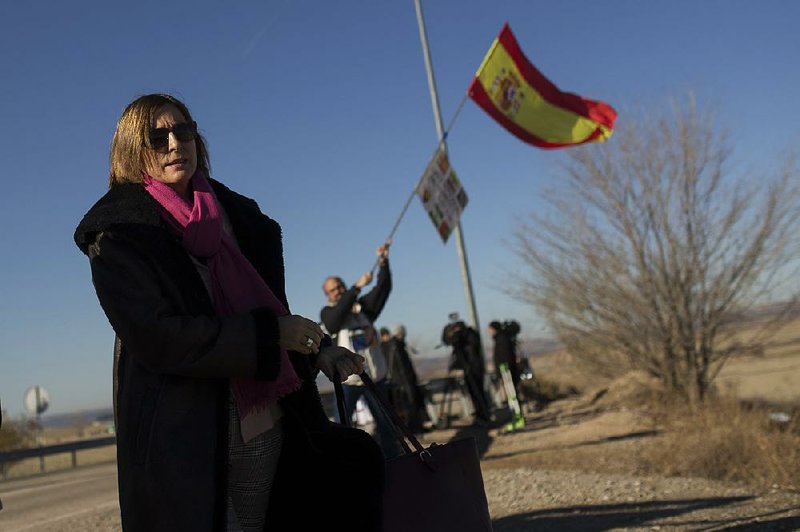BARCELONA, Spain -- Political parties for and against Catalonia's independence from Spain made a final push to persuade voters as campaigning for a regional election drew to a close Tuesday.
The contest is being held Thursday in exceptional circumstances. The Spanish government called the election when it seized control of Catalonia, dismissed its government and dissolved the regional parliament following a declaration of independence by separatist lawmakers there Oct. 27.
Several members of the ousted Cabinet, including former Catalan President Carles Puigdemont, campaigned from Brussels, where they sought refuge from Spanish justice. Others are in jail in Spain on provisional rebellion charges.
Puigdemont closed his re-election campaign with a video speech streamed later Tuesday at a rally for his Together for Catalonia party in Barcelona. In his speech, he vowed to return to Catalonia if he's re-elected as the region's president.
His former deputy president, Oriol Junqueras of the Republican Left of Catalonia party, is in Estremera prison outside Madrid and has had his campaigning curtailed.
The parties of Puigdemont and Junqueras, along with a small anti-capitalist group, held a slim majority in the last parliament, enabling them to push ahead with the independence drive. It remains to be seen whether they can stick together after Thursday's election.
Observers predict a close race among Junqueras, Puigdemont and Ines Arrimadas of the pro-Spanish unity Citizens party.
Arrimadas, addressing more than 2,000 supporters Tuesday night in Barcelona's working class Nou Barris neighborhood, said she would put an end to the secession efforts.
"On Thursday, we are going to awaken from this nightmare of the independence push," she said at her final campaign event.
Arrimadas, a 34-year-old lawyer, presented the election as a choice "either to extend this Catalonia that is broken and divided or to begin a new era for all Catalans."
No group is expected to win a parliamentary majority.
"I expect there to be an impasse Thursday, and we are going to face quite a few weeks of attempts to form a government," said Andrew Dowling, a specialist in Catalan history at Cardiff University in Wales.
Dowling said the campaign showed the pro-secession bloc still had solid support but that the anti-independence side had come to life and posed a serious challenge.
Spain has said it will return full autonomous powers to Catalonia once a law-abiding government is elected.
Polls consistently show most Catalans want the right to decide their future but are evenly divided over splitting from Spain.
This idea of a fractured, weakened Spain going into 2018 worries Europe, which faces its own surge of nationalist, populist movements.
"Society is broken," said Rafa Martin, 55, owner of the Barcelona Verdun gym and the son of political refugees from the Spanish Civil War in the 1930s.
"There is more hate; things that were underground, that were unspoken" are again said in the streets, he said.
Martin explained: "Anyone who thinks differently is bad. If you want a united Spain, you're a fascist. If you want an independent Catalonia, you're a traitor."
In Barcelona on Saturday night, there was a rally lit by torches, with onlookers sporting yellow ribbons in support of what critics of Prime Minister Mariano Rajoy's government call the "political prisoners" -- including Junqueras.
"Imagine if Puigdemont is elected president again. Then let us see if Europe can turn a blind eye toward Catalonia," said Gabriela Serra, an ousted lawmaker from the far-left pro-independence Popular Unity Candidacy party. Serra said Puigdemont could form a "government in exile."
"Why not?" she said. According to Serra, Catalans did something not seen in a generation in Europe: "More than 2 million people staged an act of mass civil disobedience. They voted!"
Information for this article was contributed by Ciaran Giles, Aritz Parra and Barry Hatton of The Associated Press and by William Booth and Raul Gallego Abellan of The Washington Post.
A Section on 12/20/2017
